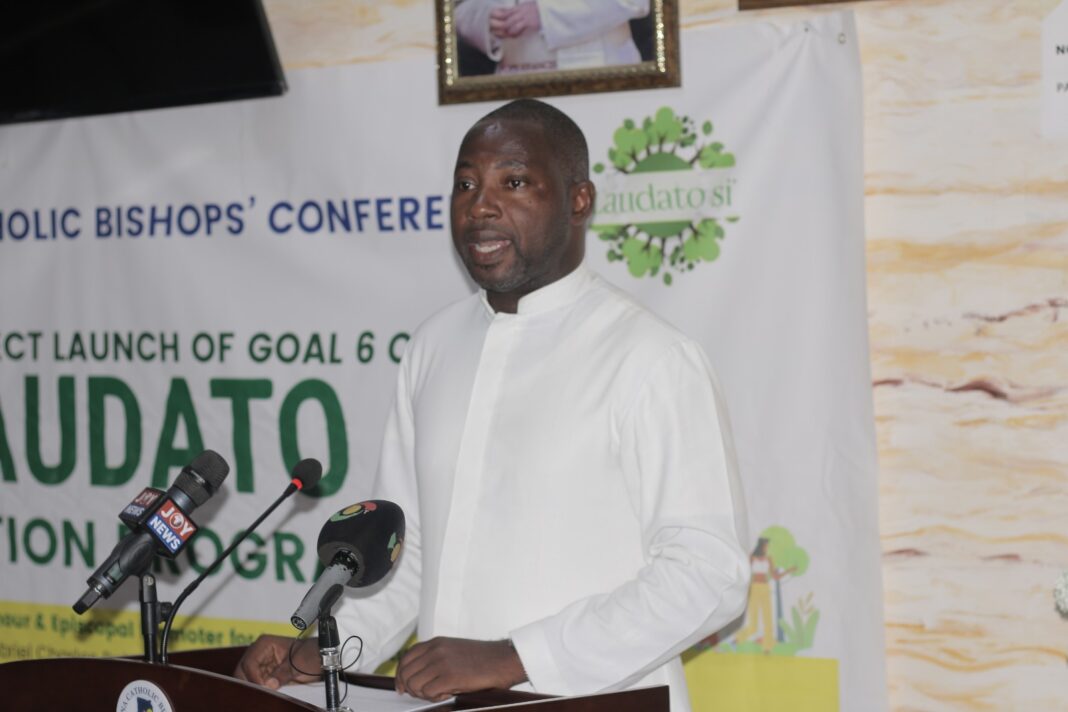By Rev. Fr. Emmanuel Abbey-Quaye, Pedu
Ghana’s Parliament voted on July 25, 2023, to pass the Criminal Offences (Amendment) Bill, 2022 to abolish the Death Penalty on the country’s statute books for over 50 years now to a mixed reaction of both support and opposition among citizens. All across the globe, the death penalty has always been a controversial issue between proponents and abolitionists.
Death Penalty: Arguments for and against
Proponents of the death penalty make the following arguments, among others for their position. One, they argue that death penalty prevents future murders. According to them, since society uses punishment to discourage would-be criminals and has the highest interest in preventing murders, it should use the strongest punishment available, namely, the capital punishment, to deter murder.
Two, from the viewpoint of retribution, they also argue that a just society should require the death penalty for anyone who takes another person’s life. According to them, when someone takes another person’s life, the balance of justice is disturbed and unless that balance is restored through capital punishment, society will ultimately succumb to the rule of violence. For Louis Pojman, “the criminal deserves to be punished … in proportion to the gravity of his or her crime, whether or not the victim or anyone else desires it” (See Pojman, 57).
Three, proponents believe that the death penalty restricts the murderer and makes society safer. They contend that when a murderer is sentenced to life imprisonment and incarcerated, most victims still feel unsafe because of the possibility that the offender could escape and seek revenge on them and their families. The death penalty serves as a form of incapacitation like the way an imprisoned robber is prevented from robbing again.
Four, making reference to the cost of maintaining criminals in prison, proponents of the death penalty argue that the taxes of society must not be “wasted” in catering for murderers on life imprisonment but channeled to other profitable uses for the benefit of society.
Conversely, those opposed to the death penalty make the following arguments inter alia. One, that available evidence does not support the theory that the death penalty has a deterrent factor or decrease crime. In the USA, for example, the data shows that States like Texas that still use the death penalty do not have lower murder rates while criminals do not often get caught. As a consequence, it is and would be inaccurate to conclude that the death penalty has a deterrent effect on crimes, including murder.
Two, abolitionists argue that the death penalty is brutal on society. The “brutalization effect” states that when violence is worsened by way of the death penalty, more violence occurs. They cite evidence to support that the death penalty makes society more dangerous by further increasing violence through the “brutalization effect.”
Three, the death penalty can and do occasionally lead to the execution of innocent people who suffer irreversible tragedy. No one can deny the fact that some people on death row are not guilty while some innocent people are executed for crimes they did not commit. The judicial systems are not always sacrosanct because they are manned by fallible and weak human beings who are prone to corruption and error.
Four, the death penalty is an inhumane killing which makes people become murderers that society despises. It often has negative traumatic, psychological effect on those who do the killing and those in whose name the killing is done. It is a barbaric, antiquated, regressive and cruel punishment unfit for today’s civilized global world. This is why it is unsurprising that almost all civilized countries today, except the USA, have abolished it. Besides, countries which still cling to the death penalty like North Korea, Saudi Arabia, Yemen, etc., often tend to be corrupt and dictatorial with very little regard for human rights.
My Position on Death Penalty
As priest-theologian, my own personal position on the death penalty is that it is both cruel and unnecessary and should be done away with completely. This position is grounded on the truth that every human being is created in the image of God (imago Dei) and every human life is both sacred and inviolable. As a precious gift of God (Gen. 2:7, 21-23), human life must always be respected and protected while the dignity of life must never be taken away. Even in the case of someone who has done great evil, there are alternative ways such as life imprisonment and corrective reformational measures through which society can punish and protect itself without ending that person’s life. While supporting that punishments should be consistent with the demands of justice, l equally argue that punishments must always be administered with utmost respect for human life and dignity. The death penalty does not satisfy this criterion.
Conclusion
Today, it is a truism that the tide is turning against the death penalty globally as more and more countries are banning its use as a form of punishment. The global growing opposition to the death penalty and changes in sentencing guidelines are leading gradually towards its total abolition across the world. Ghana’s repeal of the death penalty constitutes a significant milestone in our country’s democratic dispensation for by this action, we have taken our rightful place among the comity of nations where international human rights are respected and best practices promoted. This is a feat worth celebrating. Kudos to our Parliament for leading us on this rightful path.



